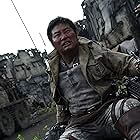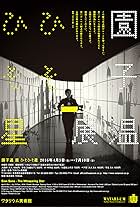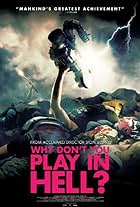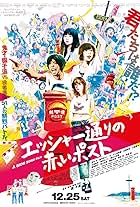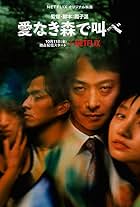After a string of excellent movies (showcasing an awesome, almost frightening consistency of quality) - e.g. Suicide Club, Noriko's Dinner Table, Love Exposure, Guilty of Romance - Shion Sono provides his most mature film to date with "The Land of Hope".
This is a movie about roots, growing up, self-discovery, death, life and the possibilities of learning more about yourself through hardship. This is a movie about commitment - in love as well as in life - and how to make good things happen in a bad world. This is a good movie about bad things happening to good and bad people alike.
To get the bad out of the way, the old tropes that Sion uses in every one his films are still there: drama veering on melodrama (but never actually taking the plunge), classical and romantic music played to death to evoke emotions, long scenes that are sure to test the audience's patience...
But even there, even when I thought the director had failed - in the placing of a long-winded scene or the evocation of an easy emotion - the dramatic pay-off ALWAYS justifies everything that has come before. The film provides, indeed, one of the most emotionally draining, spiritually breathtaking third acts that I have ever seen in a film.
The most astounding parts of this film are, in no particular order: 1) the stellar acting, especially by the old couple who form the heart of the film, 2) the scenery of real-life Fukushima set in the fictive town of Nagashima, 3) the beautiful cinematography, editing and post-production, 4) the interplay of "official reality" (dreamlike illusion) vs. what is actually happening on ground level, 5) the post-apocalyptic, slightly surreal suspense, almost like a horror film, of the ever-present nuclear danger, 6) the psychological and sociological meltdown resulting from a nuclear meltdown, 7) the complex web of characters and life stories woven in the fabric of the film.
Overall, there is little to hold me back from heartily recommending this film to serious movie-lovers everywhere.
Over-effusive praise is self-defeating, because it can throw people off. It's not a perfect film. There is still something in the Japanese style of movie making that allows for meandering shots at times. There are still ways of refining the craft forward; I have high hopes Shion Sono's best film is still ahead of him.
But honestly, there is not much else to criticize. All I can say is that this movie demanded everything, and gave back everything, in the course of its perfectly timed journey and the well-planned catharsis.
People in the West should take note of his name, for his work transcends cultural barriers. He has the power to blow floodgates of emotion wide open. Sono has, indeed, after a series of great films, proved himself to be one of the most interesting and powerful directors living the world today. And here, perhaps, on the mellow suffering of his countrymen, he has crafted the crown jewel of his career.














